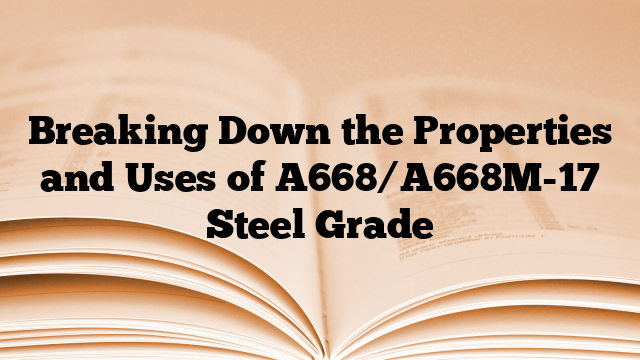A668/A668M-17 is a standard specification for carbon and alloy steel forgings for general industrial use. This specification covers multiple grades of steel that are classified based on their mechanical properties.
The mechanical properties of A668/A668M-17 steel grades include tensile strength, yield strength, elongation, and reduction of area. These properties determine the strength and toughness of the steel, making it suitable for various applications. The tensile strength refers to the maximum amount of stress the steel can withstand before breaking. The yield strength is the amount of stress at which the steel begins to deform permanently. Elongation measures the ability of the steel to stretch without breaking, while reduction of area measures its ability to withstand deformation.
A668/A668M-17 steel grades are commonly used in the construction of pressure vessels, power transmission components, and other industrial applications. The steel’s high strength and toughness make it suitable for handling high-pressure and high-temperature environments. It is also used in the construction of bridges, buildings, and structures that require durable and reliable materials.
In addition to its mechanical properties, A668/A668M-17 steel grades have specific chemical compositions that contribute to their properties and performance. The composition includes elements such as carbon, manganese, phosphorus, sulfur, silicon, nickel, chromium, molybdenum, and vanadium. The presence of these elements influences the steel’s strength, hardness, corrosion resistance, and weldability.
The A668/A668M-17 standard provides guidelines for the manufacturing process, heat treatment, and testing of the steel forgings. It ensures that the steel meets the required mechanical and chemical properties specified in the standard.
In summary, A668/A668M-17 steel grades are carbon and alloy steel forgings that possess specific mechanical and chemical properties. They are used in various industrial applications that require high strength, toughness, and durability. The standard provides guidelines for manufacturing and testing to ensure the quality and consistency of the steel.

